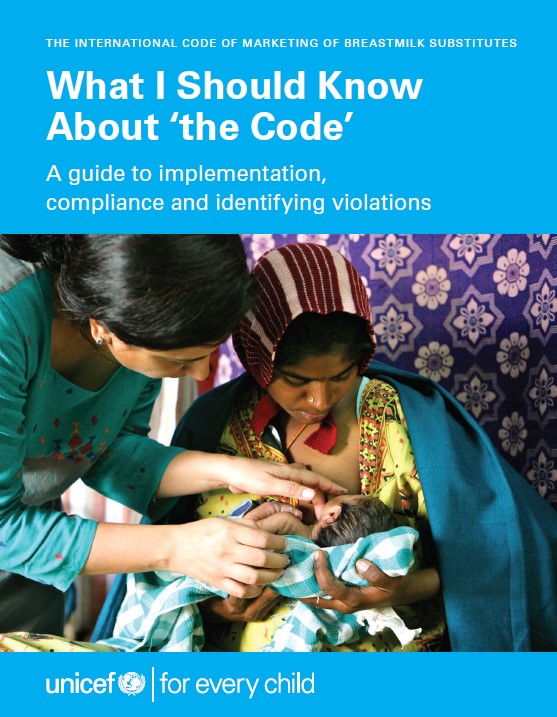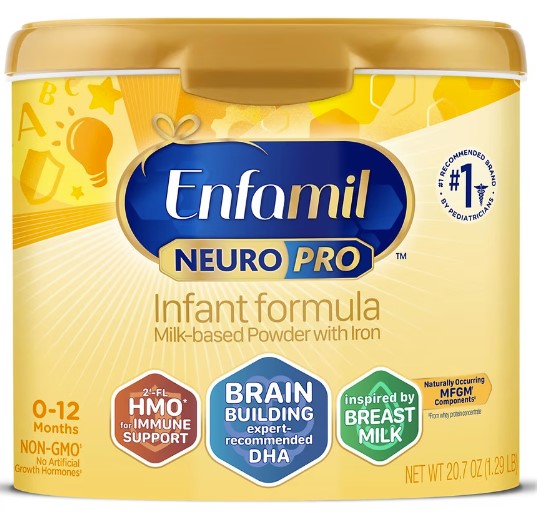Weekend reading: Update on the International Code on infant formula marketing
Earlier this week I wrote about the UNICEF-WHO meeting I went to in Geneva on implementing the 1981 International Code governing marketing of infant formulas.
UNICEF has just issued an update: What I [meaning you] Should Know about the Code

This new publication—a one-stop shopping guide to the issues—summarizes UN resolutions on the Code since 1981 as well as subsequent research on breastfeeding and infant formula marketing, most notably the Lancet Commission reports I wrote about earlier.
Incontrovertible evidence demonstrates how inappropriate marketing of infant formulas undermines breastfeeding and can harm children, especially in places that do not have clean water to dilute formulas.
Every country in the world has committed to the Code—the United States was the last holdout. We do not seem to pay much attention to the Code’s provisions.
Here is one example. The Code says: I’m not sure how to interpret the “except” phrase, except that our FDA must think that the health claims on a product like this are entirely acceptable, whereas they would not be allowed in many other countries. [Reference 23 refers to UN General Assembly Resolution 63.23.]
I’m not sure how to interpret the “except” phrase, except that our FDA must think that the health claims on a product like this are entirely acceptable, whereas they would not be allowed in many other countries. [Reference 23 refers to UN General Assembly Resolution 63.23.]

The Code states that infant formulas should not be labeled in any way that suggests formula might be superior to breast milk. This and the accompanying statement on the product website, would appear to violate that guideline.

Infant formulas do a good job of substituting for the nutrients in breast milk. Because the FDA tightly regulates their ingredients, they are all pretty much alike, although they vary in price enormously.
The infant formula industry deserves close scrutiny of its marketing practices and this UNICEF publication is an excellent place to begin.

